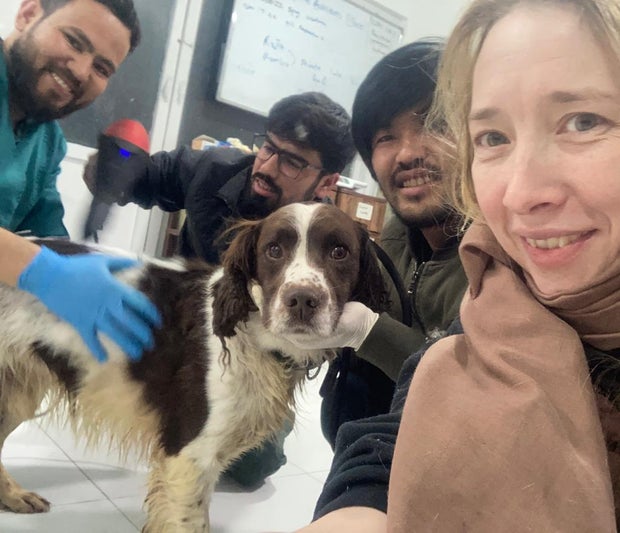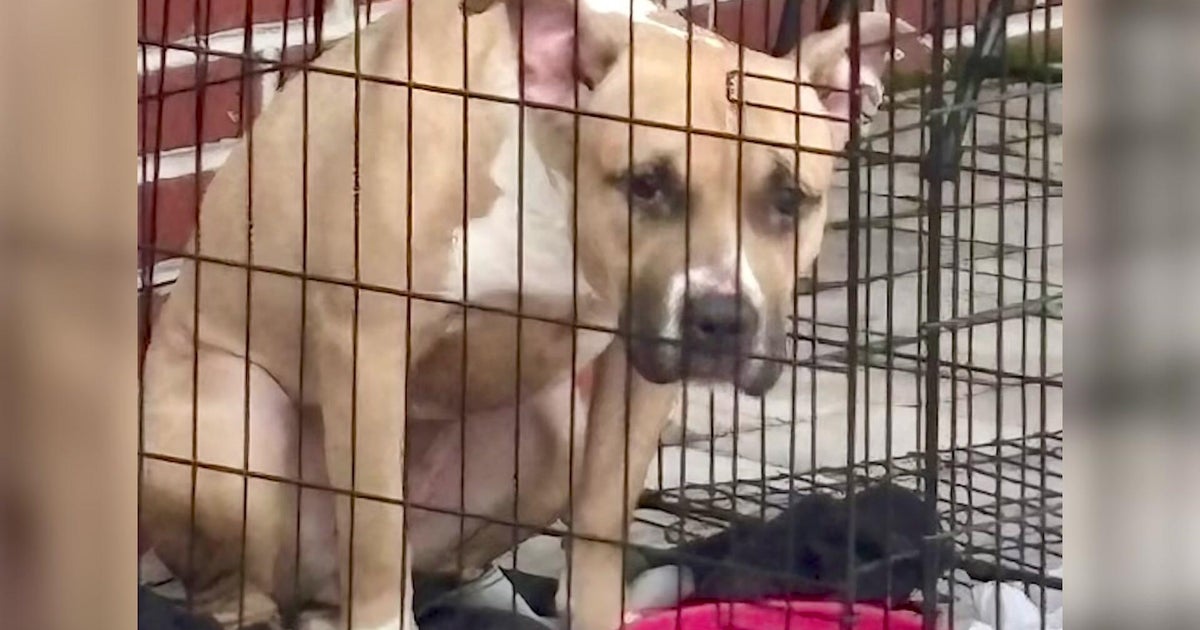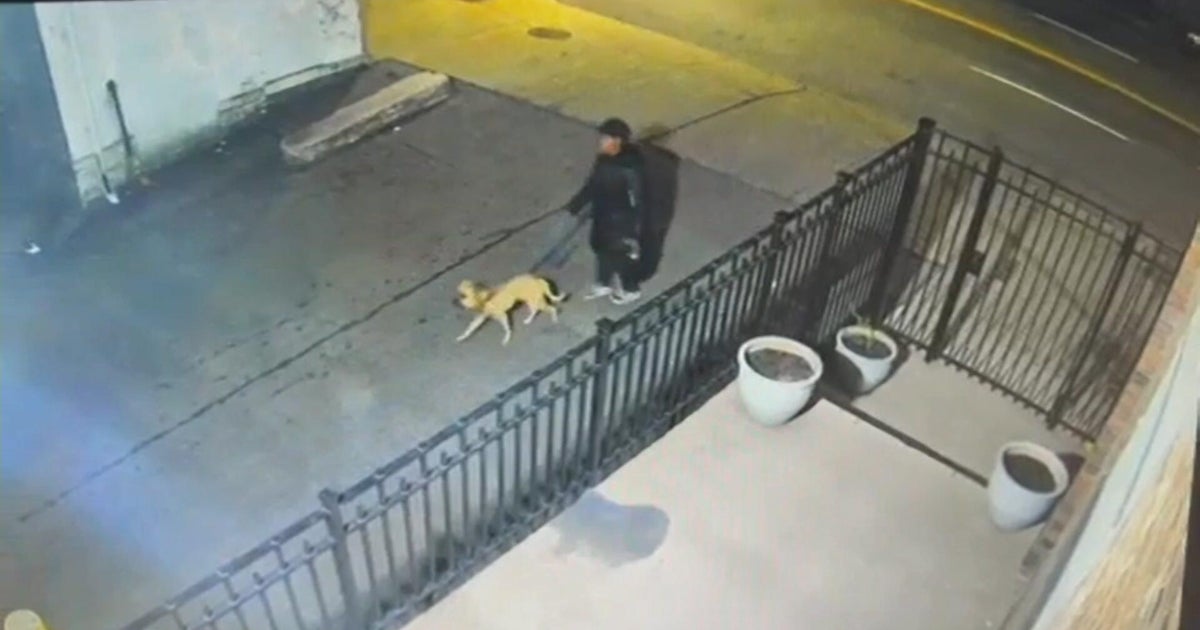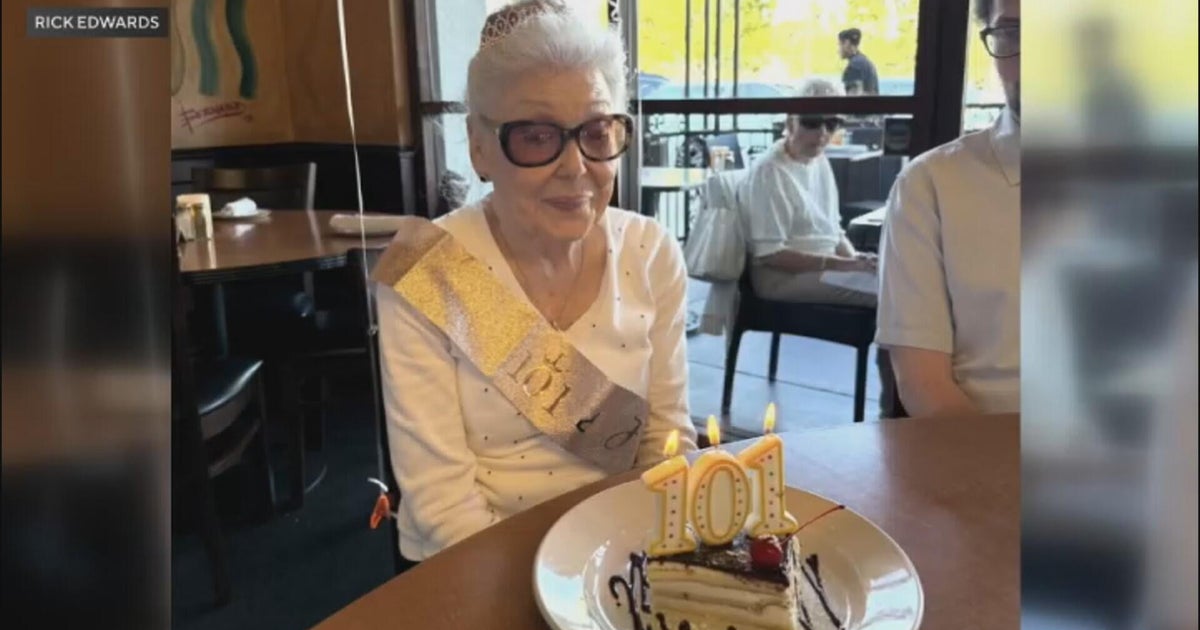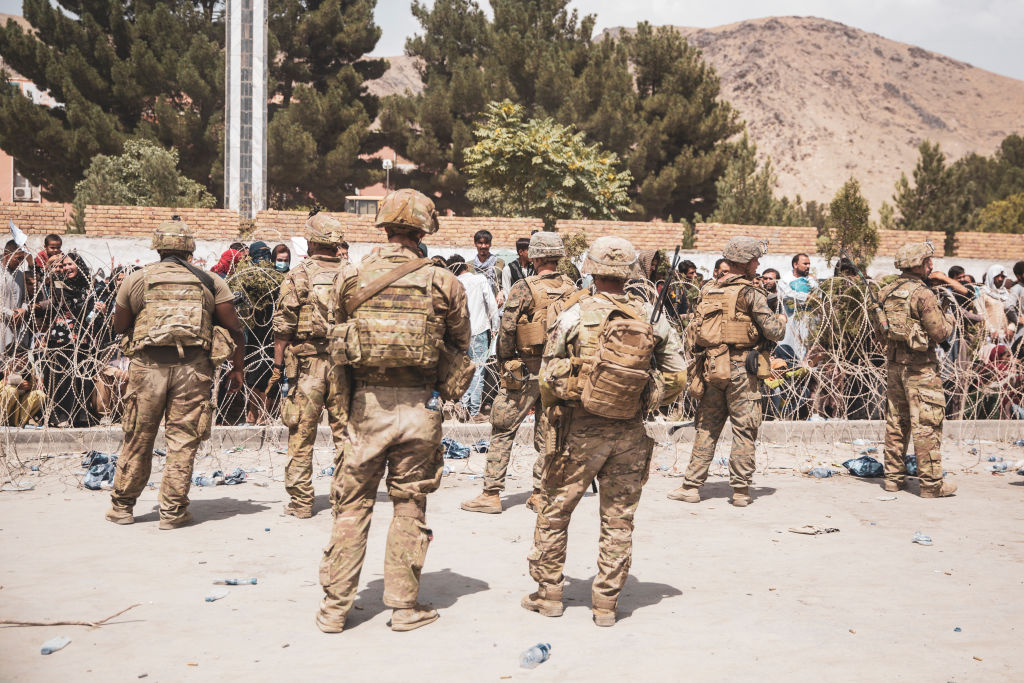Her dog disappeared during the fall of Afghanistan. Two years later, the military working dog and his Army handler reunited in the U.S.
Two years of waiting were over.
On a rainy Saturday afternoon in Knoxville, Tennessee, in a busy gas station parking lot, U.S. Army Platoon Commander Kristen St. Pierre was reunited with someone she hadn't seen since she left Afghanistan in 2019: her military working dog Chase.
"It's amazing to be with him," St. Pierre told CBS News, who didn't know Chase's whereabouts or even if he survived until this past November. St. Pierre cared for Chase during her 2019 tour of duty in Afghanistan and had to leave the dog behind when she deployed. During the fall of Afghanistan in the chaotic weeks and months that followed as U.S. troops withdrew and Afghans fled in droves, Chase disappeared.
"Chase was a piece of home during our time in Afghanistan," said St. Pierre, who said she didn't really realize how difficult saying goodbye would be.
But thanks to a twist of social media fate and the determination of Charlotte Maxwell-Jones, the American founder of Kabul Small Animal Rescue brought the dog and its handler together in a "moment of hope," St. Pierre said.
Through news and Instagram posts, St. Pierre came across Kabul Small Animal Rescue's social media page, where she saw a picture of Chase. St. Pierre immediately contacted Kabul Small Animal Rescue and asked to adopt that dog, and along with Maxwell-Jones, hatched a plan to bring Chase back to the U.S.
"Since we got him back last November, that's been the plan from Day 1," Maxwell-Jones told CBS upon arrival at Dulles Airport in D.C. But in newly occupied Afghanistan, Maxwell-Jones has learned the Taliban governs under its own rules. They had to re-register again and go to all of the different ministries and make sure the registration was in order.
In 2021, almost all of their staff fled the country and Maxwell-Jones had to rebuild. They are the only animal rescue in Afghanistan, she said, there aren't that many veterinarians. She says the Taliban government supports rebuilding with all-male staff aside from herself and a few foreign women. She and the 85 staff care for 250 dogs, about 70 cats, four tortoises, four chickens, seven sheep and three peacocks. They get asked to care for all sorts of animals, Maxwell-Jones said, and they've been asked to export poisonous snakes and a surrendered fighting camel.
"We politely declined that one," she said.
To get Chase to the U.S., Maxwell-Jones had to have him microchipped, revaccinated, tested for rabies and have other blood tests. For its rescues, the organization works with the Taliban government to get export permits from the Ministry of Agriculture, Ministry of the Interior, border police and Ministry of Economy, among others.
Then Maxwell-Jones flies the animals into Dubai, and from there they coordinate the flights to D.C, where they have to officially import the animals and go through the Centers for Disease Control and Prevention, where the agency checks the animals for disease before they are released into the country.
The process is exhausting and onerous, Maxwell-Jones say, but she continues because she "believes that animals' lives actually matter just as much as other lives."
In Afghanistan, she says, "There's about 10,000 humanitarian organizations, and when it comes to animals, there's us."
Chase is settling into his new home in Fort Benning, Georgia, where St. Pierre and her husband reside. He still "maintained trust in humans" and loves getting his "belly rubbed," said St. Pierre. She says getting Chase to the United States has been surreal and shows her that "humanity is still occurring in Afghanistan."
Ahmad Mukhtar contributed to this report.

